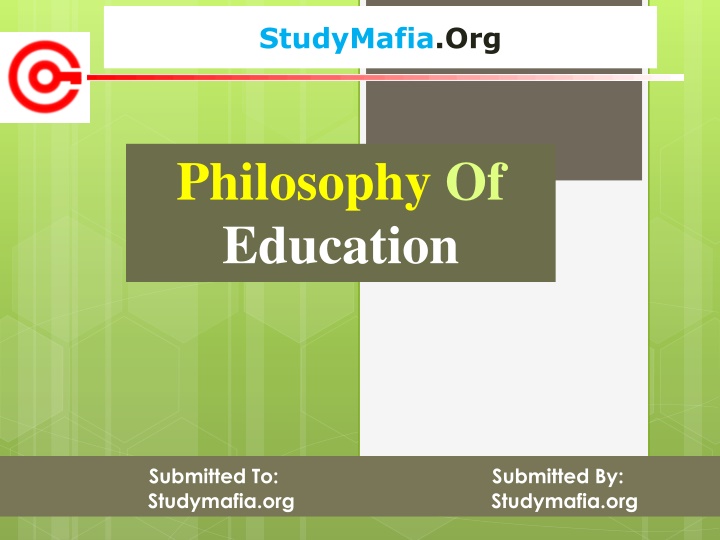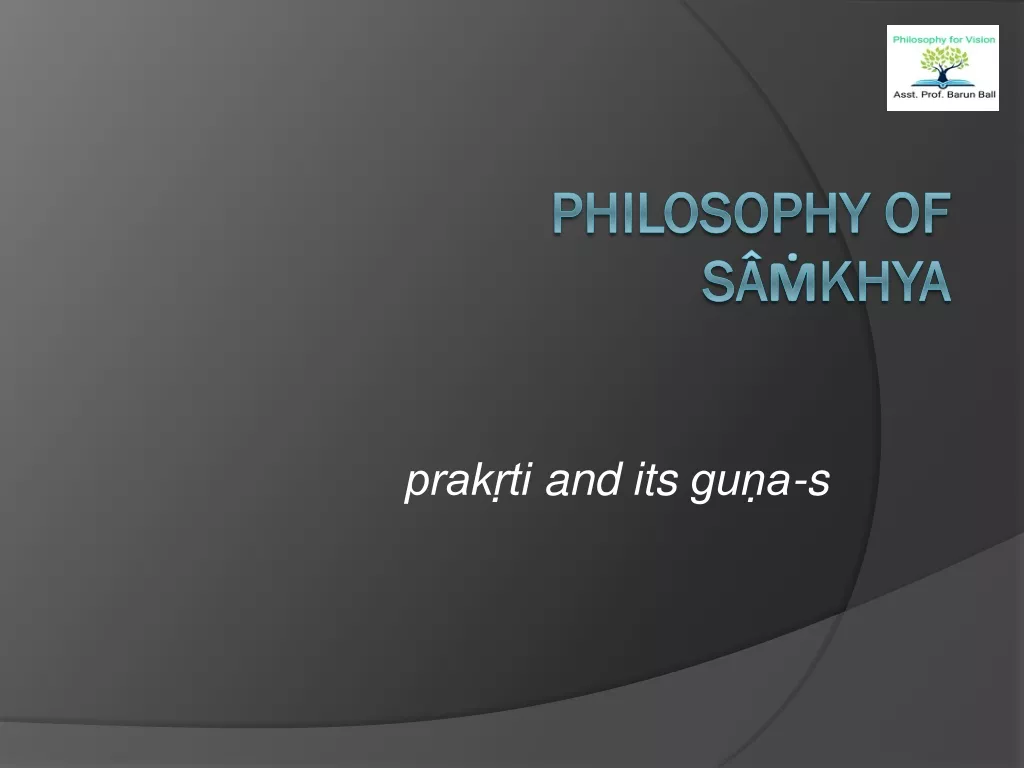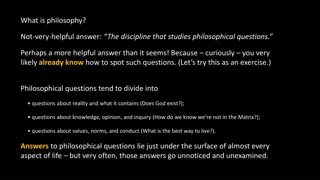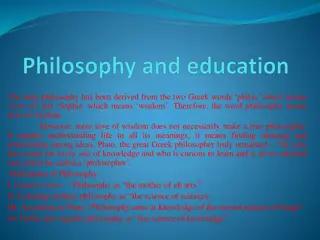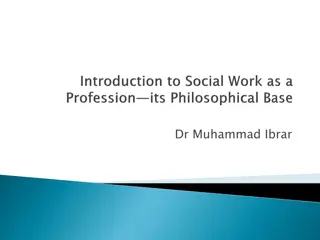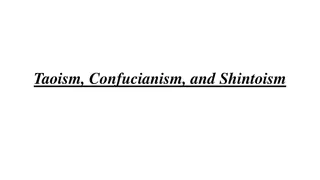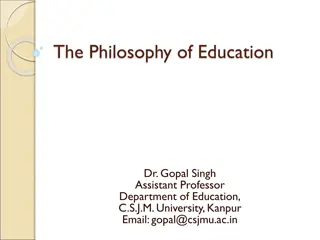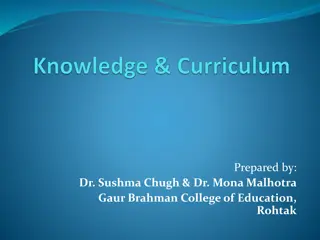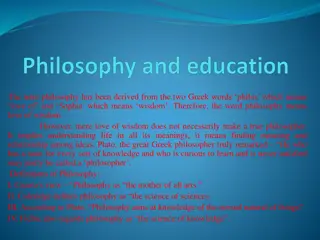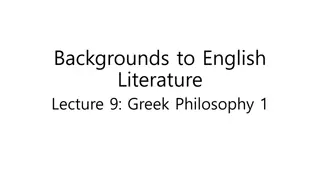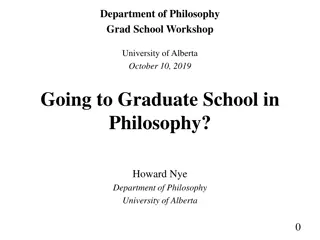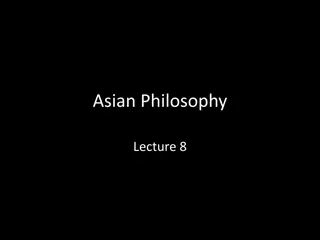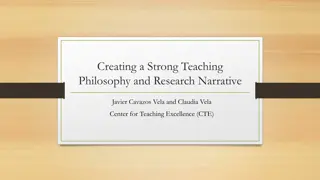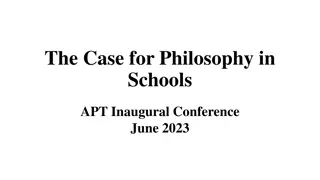Philosophy of Education: Components and Role
The philosophy of education delves into the nature and aims of education, examining various components such as realism, pragmatism, perennialism, and behaviorism. It explores how different philosophical approaches shape teaching methods and student learning outcomes.
Download Presentation

Please find below an Image/Link to download the presentation.
The content on the website is provided AS IS for your information and personal use only. It may not be sold, licensed, or shared on other websites without obtaining consent from the author.If you encounter any issues during the download, it is possible that the publisher has removed the file from their server.
You are allowed to download the files provided on this website for personal or commercial use, subject to the condition that they are used lawfully. All files are the property of their respective owners.
The content on the website is provided AS IS for your information and personal use only. It may not be sold, licensed, or shared on other websites without obtaining consent from the author.
E N D
Presentation Transcript
StudyMafia.Org Philosophy Of Education Submitted To: Submitted By: Studymafia.org Studymafia.org
Table Contents Definition Introduction Components of Educational Philosophy Role of Philosophy in Education Factors of Philosophy of Education Conclusion 2
Definition The philosophy of education is the branch of philosophy that examines the nature, aims, and problems of education. 3
Introduction As the philosophical study of education, it investigates its topic similar to how other discipline-specific branches of philosophy, like the philosophy of science or the philosophy of law, study their topics. While there is wide agreement on the general topics discussed in the philosophy of education, it has proven difficult to give a precise definition of it. 4
Components of Educational Philosophy Realism The philosophy of education, known as realism, focuses on the role of scientific observation, experimentation, and hands-on learning. It emphasizes the benefits of students grasping an intuitive sense of any subject or topic. 6
Components of Educational Philosophy Pragmatism Pragmatism focuses on the core value of problem-solving and imparting the right skill sets that help students solve specific challenges. You can use the philosophy of pragmatism in your approach to teaching when you want to improve student output and help kids learn how to tackle complex problems. 7
Components of Educational Philosophy Perennialism This philosophy of education relies on traditional teachings as core foundations through which you can teach your students. The basic laws of math, grammar, physics, and chemistry are emphasized and taught to students that are actively learning. 8
Components of Educational Philosophy Behaviorism Behaviorism looks at the role of positive and negative reinforcement to establish specific outcomes. You can use this philosophy of education to create positive habits in the lives of your students through the proper positive reinforcement techniques. 9
Role of Philosophy in Education The role of teachers as mentors Teachers are mentors in how they shape how students think about challenges and problems. Mentorship also relies on the right philosophy used when teaching, such as rewarding positive behavior, focusing on collaborative learning and prioritizing harmony. 10
Role of Philosophy in Education Teaching through empathy The philosophy of education focuses heavily on understanding what students feel when being taught. By putting ourselves in our students shoes, we can uncover the benefits of multisensory learning, learning tools, artifacts of teaching, and the impact of engagement. 11
Role of Philosophy in Education Teaching Impacts Societal Growth The future of our world depends on teachers as we navigate the complex challenge of educating the next generation of leaders. Concepts such as essentialism and pragmatism can be used when thinking about how our teaching methodology will impact the future with what values we are teaching. 12
Factors of Philosophy of Education The right type of philosophy of education depends on the following factors Types of students in class, their proficiency, and what they respond to best. Your role as a teacher is to be a mentor & counselor in their lives. The impact of your curriculum on their innate grasping of the concept. 13
Factors of Philosophy of Education The time and resources available to proceed with the right approach. The use of technology in the teaching program to scale approach and philosophy. Ultimately, you need to test different philosophies and leverage the ones you feel most comfortable with. 14
Conclusion A philosophy of education is a statement (or set of statements) that identifies and clarifies the beliefs, values and understandings of an individual or group with respect to education. 15
References Google.com Wikipedia.org Studymafia.org Slidespanda.com
Thanks To StudyMafia.org
